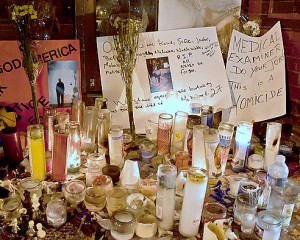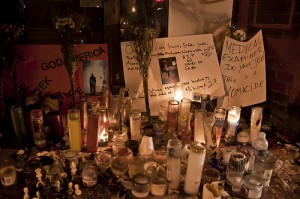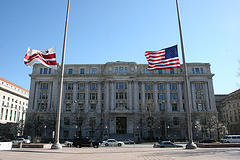Ali Ahmed Mohammed stopped existing on October 15. I use that odd phrasing because of something striking I have noticed– white people tend to say “he died”, while Black people use words like “he was killed”. Almost four months after a death which is still shrouded in mystery, the City Paper’s feature, “Something Happened at DC9. Who Did it Happen to?” doesn’t provide any additional information to those of us who wonder how Mohammed died or why.
So this is what the piece does do; it humanizes Mohammed while providing details about a man who has either been vilified or martyred, depending on whom you ask. This is what it does not do: assign blame. Maybe we’ll never know what happened, but if you are interested in one of the city’s most prominent immigrant communities, the article is worth a read:
One thing to know about Little Ethiopia: It’s not little. Decade-old census figures place the number of Ethiopians in the region at about 30,000, but community members suspect the real number is considerably higher—at least 100,000. It’s the largest Ethiopian community outside Ethiopia, says Andrew Laurence , president of the Ethiopian-American Cultural Center and the neighborhood’s unofficial historian.
Like the demographic that congregates there, Little Ethiopia has been growing. Today, Laurence says, it encompasses a “traditional border of 18th Street in Adams Morgan from Columbia Road to Florida Avenue over to 9th Street along Florida (U Street) to 9th Street and then down 9th Street to Q Street and over to 7th and Q Street.” Of course, Ethiopians aren’t the only ones who flock to the 1900 block of 9th Street NW. DC9, with its appeal to white hipsters, and Nellie’s, a gay sports bar on the corner, reflect two other populations with a growing presence in the neighborhood.
Laurence says D.C. became a hub for Ethiopian immigrants starting in the 1970s, “when Haile Selassie was overthrown.” The Marxist military regime that took over began killing off elites and intellectuals, Laurence says. Many fled to America, which had supported the deposed monarchy. The immigrant population was initially centered in Adams Morgan, near the former home of the Ethiopian embassy.







